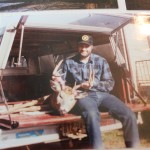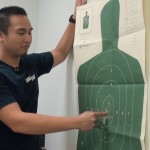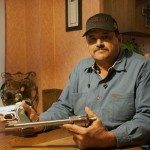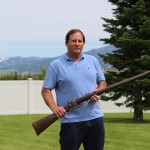Remembering Virginia Tech
Posted April 29, 2014By Kristen Hwang
On April 16, 2007, senior Seung-Hui Cho shot and killed 32 people on the campus of Virginia Polytechnic Institute and State University. Cho injured 17 others before taking his own life.
In a classroom 100 yards away, journalism professor Roland Lazenby waited in lockdown with his students. When the shooting ended, Lazenby took one student with him to report the story. They met with grim police officers and shocked survivors.
It was the deadliest shooting rampage in U.S. history.
Four years after the Virginia Tech shooting, Blacksburg, Va.—a town with a population just over 42,600 people—would be thrown once more into national spotlight when a gunman shot and killed a campus police officer in broad daylight. Lazenby listened to live radio reports of the shooting that day and wept.
“The feelings really haven’t abated with time,” Lazenby said in an interview on the seventh anniversary of the Virginia Tech shooting. “There’s a long-term anger about these incidents, and every time one comes up it brings back memories.”
Lazenby grew up in Virginia and was a child of Southern gun culture. He bought his first gun at the age of 10 for $29.95. It was a single-shot Ithaca saddle gun made popular by movie stars and cowboy shows in the 1950s and 1960s. He remembers taking the gun camping when he was 12-years-old and messing around with his friends and their guns.
Later, Lazenby would attend Virginia Military Institute. He was a member of ROTC and received more formal weapons training than playing chicken in the woods with a gun.
“That gun culture: It’s as American as apple pie,” Lazenby said. “Guns were used to feed families and to protect families for centuries in this country. It’s not surprising that people want to cling to firearms today. That behavior really runs deep in our character.”
But for Lazenby, guns are not the answer anymore. He spent years as a police reporter for the Roanoke Times covering murders, murder-suicides, deadly alcoholic altercations and accidental shootings. He decided around the age of 25 to get rid of his guns. He didn’t want them around his 5-year-old daughter.
The Virginia Tech shootings only served to reinforce that decision.
“There’s the fantasy that if everybody’s armed or a large number of people are armed, these things won’t happen,” Lazenby said. “But we have lots and lots of armed people in this country and even on military bases these problems happen.”
But the balance between Second Amendment freedoms and crime reduction is hard to find in the gun wars debate, and Lazenby knows that.
“We have certain problems that we have no solution for, and in this age of divisive politics that’s even more apparent. We really can’t seem to agree on how to deal with them,” he said.
Public domain image.
Kristen Hwang is the News21 Reynolds Fellow.
Inform News21 Reporting on guns
Join the Public Insight Network and tell our newsroom about guns in your life and your neighborhood in America.
More from the Gun Wars blog
Inform our reporting
Previous National Projects
School Projects
Free Content









